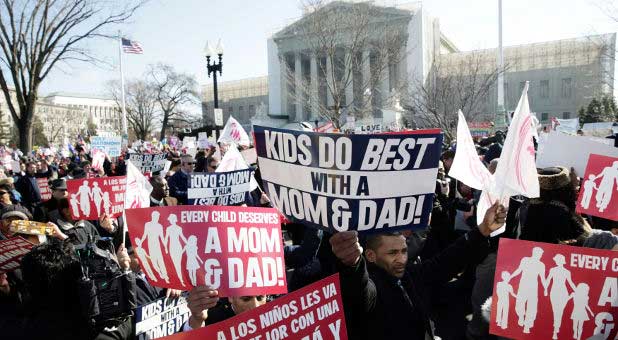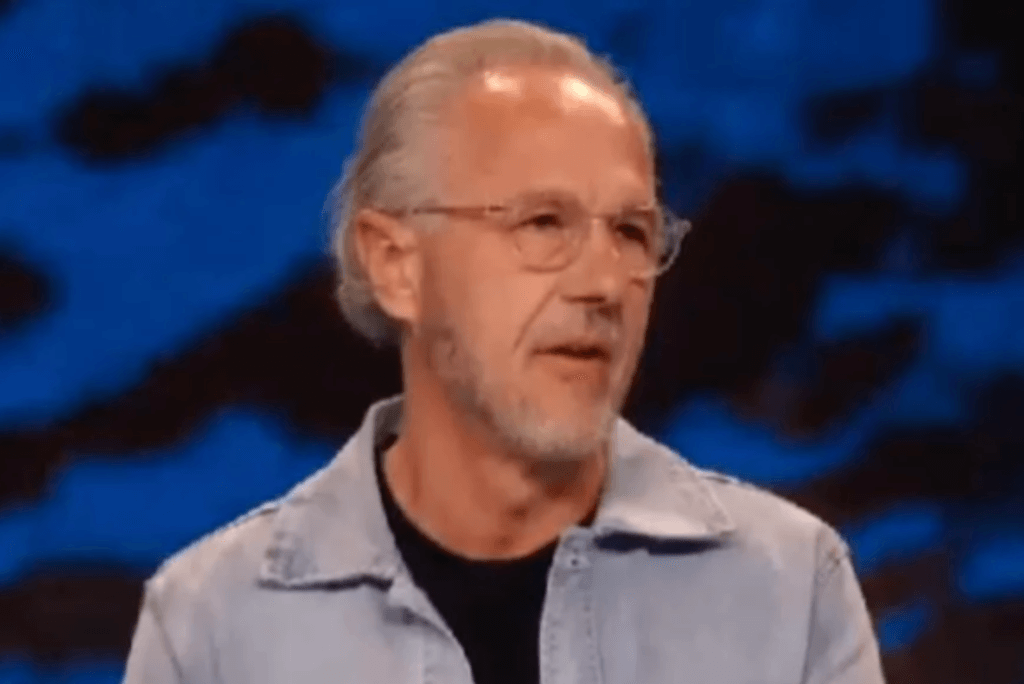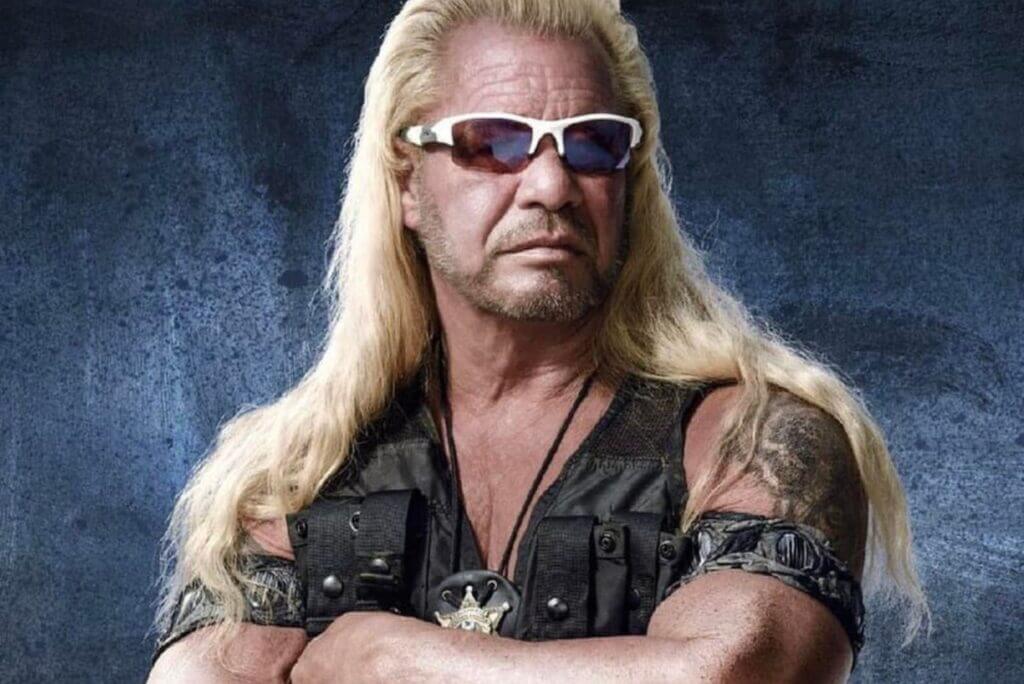Whatever the U.S. Supreme Court decides this month, gay marriage appears destined to face several more years of legal debate and at least one more round of argument at the high court.
That’s because a majority of the court’s nine justices, based on their record and comments during March’s oral arguments, are unlikely to proclaim a national right to same-sex marriage in the pending cases, and momentum for it in the states may soon slow as the battleground moves beyond the Northeast. Any right to gay marriage will come only if the Supreme Court declares it, probably years from now if it should happen.
Gay rights advocates are already girding for the next round of a struggle that stirs cultural, religious and political passions in the United States as elsewhere.
Among the nearly two dozen cases left to decide in the final weeks of the court’s term, the two gay rights disputes are among the most closely watched. One is over a provision of the 1996 federal Defense of Marriage Act that denies U.S. benefits such as Social Security survivor checks for married same-sex couples. In their March hearing the justices appeared poised to invalidate the provision.
The other dispute, with potentially greater impact, tests California’s 2008 ban on same-sex marriage. Challengers urged the court to break the ban and rule that gays and lesbians have a constitutional right to marry. But during arguments in March the justices appeared likely to rule in a way that would affect only Californians. Lower federal courts struck down Proposition 8, and it is improbable that a majority on the high court would reverse that trend and endorse the ban.
By and large, the justices typically keep an eye on the states as they take up major social-policy dilemmas. They may not want to get too far out in front of social changes, aware of the backlash generated 40 years ago when the court established a constitutional right to abortion. The 1973 Roe v. Wade decision, issued just as states were considering related legislation, remains one of the court’s most controversial modern rulings.
Needed: A National Win
Twelve of the 50 states and the District of Columbia permit gay men and lesbians to marry. Three of the dozen—Delaware, Minnesota and Rhode Island—legalized such unions this year, and the laws take effect this summer, according to the National Conference of State Legislatures.
Close observers of state legislatures say that action in Democrat-dominated states may soon run its course and that about half the states are likely to remain entrenched against gay marriage because of their conservative cast.
Interviewed this week, Theodore Olson, who argued in the Supreme Court against the California ban on gay marriage, said advocates believe they eventually will need a ruling rooted in the U.S. Constitution to make gay marriage legal nationwide.
“We have to win at some point on a national level because not all the states are going to legalize it,” Olson said. He would not discount the possibility that the justices would rule broadly this month for gay men and lesbians but said advocates were thinking of the next phase anyway.
Olson and other lawyers seeking a constitutional marriage right say a model state for the next court challenge would be one that meets two main criteria. It would be a place where voters were unlikely to approve gay marriage in the near future, because approval would render any lawsuit moot. Ideally the state also would be in a region where judges are inclined to strike down a ban on same-sex unions, as happened in the U.S. Court of Appeals for the 9th Circuit covering California.
One such state might be Virginia, which defined marriage as only between a man and woman in a 2006 state constitutional amendment. It also is one of the five states in the U.S. Court of Appeals for the 4th Circuit. Because of Democratic President Barack Obama’s appointments in recent years, that bench has a strong majority of Democratic appointees and may vote more liberally.
Charles Cooper, who argued for the California ban at the Supreme Court in the case of Hollingsworth v. Perry, declined to comment on his side’s next steps pending a ruling.
A Civil Rights Saga
While more developments lie ahead, the legal fight over gay marriage already constitutes one of the most concentrated civil rights sagas in U.S. history. Just 20 years ago the Hawaii Supreme Court ruled that its state constitution could allow gay marriage, prompting a nationwide backlash and spurring Congress and a majority of states, including Hawaii, to pass laws defining marriage as between only a man and woman.
In 2003, when the top court of Massachusetts established a right to same-sex marriage under its constitution, the action triggered another backlash as states then adopted constitutional amendments against such unions. Five years later, the tide began to reverse, and states slowly began joining Massachusetts in permitting lesbians and gay men to marry. Most of those states are in the Northeast.
Opinion polls show a steady increase in public support for gay marriage, and this month the Pew Research Center found that 51 percent of Americans now favor allowing it. That poll also found that three-quarters of people responding believed legal recognition of same-sex marriage nationwide would happen one day.
That day might not be so soon.
“There may be a slim national majority for same-sex marriage, but there isn’t a majority in a large number of states,” said Jack Tweedie, director of the children and families program at the National Conference of State Legislatures. Tweedie noted that a majority of states have reinforced their opposition to gay marriage with constitutional amendments in the past decade. About 30 states now have such bans on the books.
Gay rights advocates say if the court strikes down the law denying federal benefits in the case of United States v. Windsor, state action on same-sex marriage might accelerate, especially in states that already allow civil unions for gays and lesbians. Still, lawyer David Codell, who specializes in gay legal rights and is a director at UCLA’s Williams Institute, predicted some states would never go that route on their own.
“It seems likely that at some point a constitutional ruling from the court will be necessary for full equality nationwide,” he said. “The issue remains tougher than people think.”
Reporting by Joan Biskupic; Editing by Howard Goller and Prudence Crowther
© 2013 Thomson Reuters. All rights reserved.
See an error in this article?
To contact us or to submit an article






















